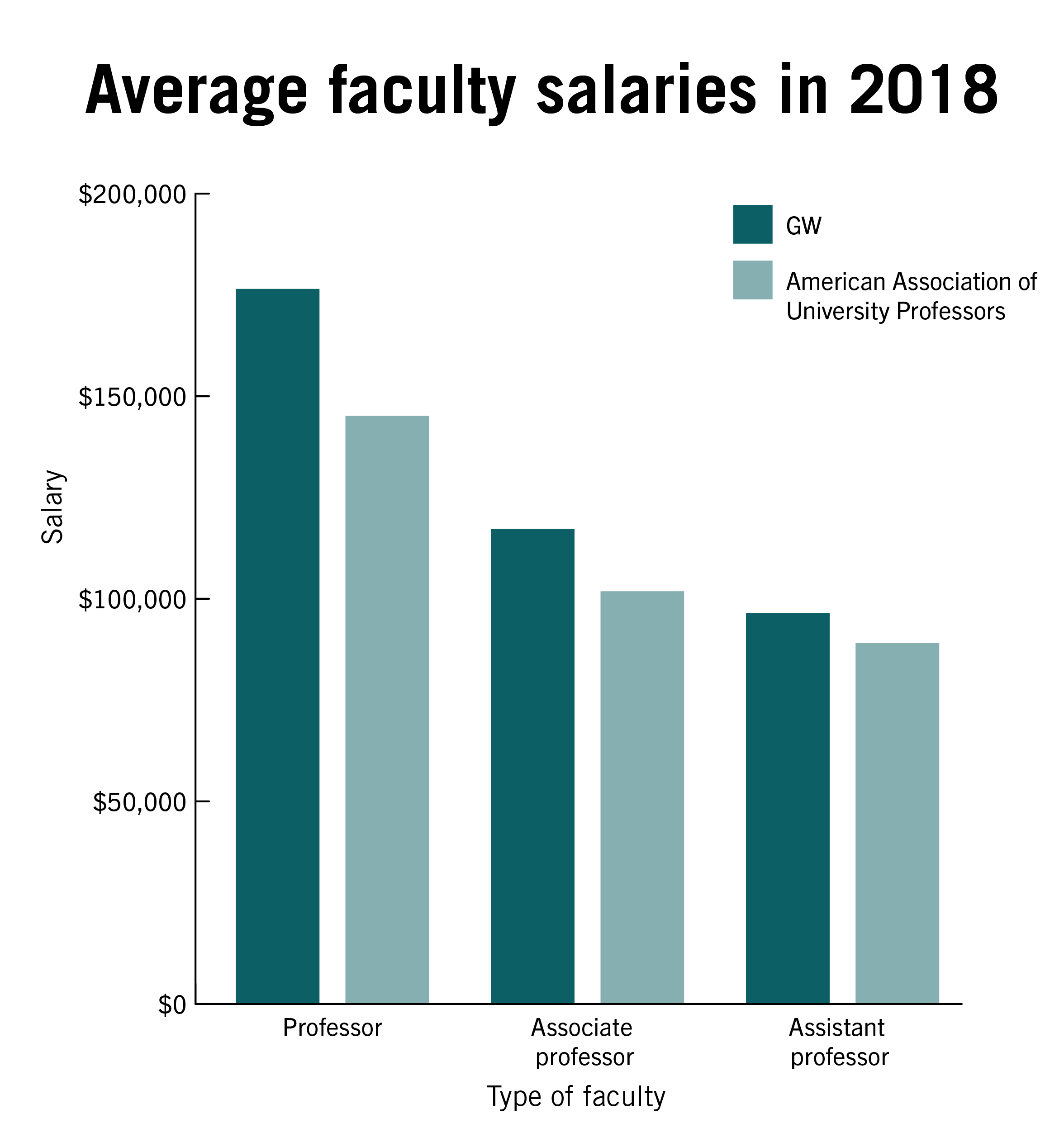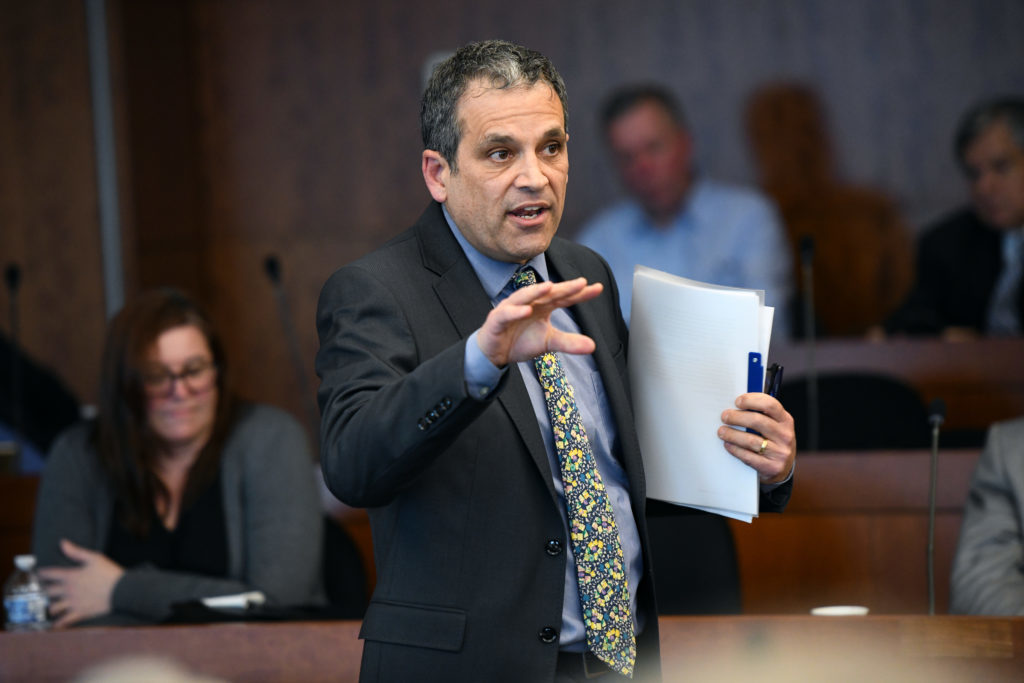Faculty pay continues to surge past national averages, according to salary data presented at a Faculty Senate meeting last week.
The average professor salary has grown about 30 percent over the past 10 years, a greater growth rate than at least five of GW’s peer institutions. The University’s average salary clocked in higher than more than 80 percent of other colleges and universities nationwide, according to the salary presentation.
Between academic years 2016-17 and 2017-18, average professor pay increased 2.7 percent and associate professor pay jumped 1.7 percent. In 2017, professors made about $179,000 on average, while 80 percent of colleges and universities nationwide recorded salaries of roughly $166,000 or less.
Salaries for professors and associate professors have consistently exceeded the 80th percentile of the national annual survey on faculty compensation conducted by the American Association of University Professors. Last year, only non-tenure-track assistant professors fell below the 60th percentile, clocking in with salaries of roughly $81,000 compared to the national baseline of about $89,000.
Of the University’s peer institutions, GW’s professors earned more than seven schools.
Provost Forrest Maltzman said full professors teach a little more than 50 percent of classes on campus, and administrators have made it a priority to offer competitive salaries.
“We try to make sure that some our full-time faculty are teaching some of the larger courses so that students have the opportunity to be with a faculty member who will more consistently be here and have a presence on campus,” he said.

Lily Nikias | Designer
Source: Annual Report on Core Indicators
Maltzman added that faculty pay is generally competitive, and the compensation data influences how the Board of Trustees decides to allocate funds during the budgeting processes.
“You look at charts like this and say are we relatively comfortable with where we are,” he said.
Rita Kirschstein, a visiting professor of higher education, said that despite the increase, many faculty still encounter problems affording the cost of living and housing in the D.C. area, and officials should consider those expenses when deciding salaries.
She added that the University should continue to grow salaries for assistant professors because qualified candidates may choose a higher paycheck in the private sector over academia.
“We lose faculty that we would like to get,” she said. “I think a lot of really bright people are being turned away.”
James Soto Anthony, a senior lecturer and director of the higher education program at Harvard University, said that many universities find competitive salaries difficult to maintain because of decompression, a higher education trend in which junior faculty ask for higher salaries but senior faculty still earn the same amount. The trend creates an unsustainable expense, he said.
He added that continuing to keep salaries high for faculty in the science and engineering fields will help ensure that officials can pursue University President Thomas LeBlanc’s goal of strengthening GW’s science, technology, math and engineering presence. Professors in the School of Engineering and Applied Science are the third-highest-paid faculty members on average, according to the salary data.
“STEM is the most expensive thing a research university can do,” he said. “You want to be able to provide that infrastructure so they can get grants and extra functions.”





